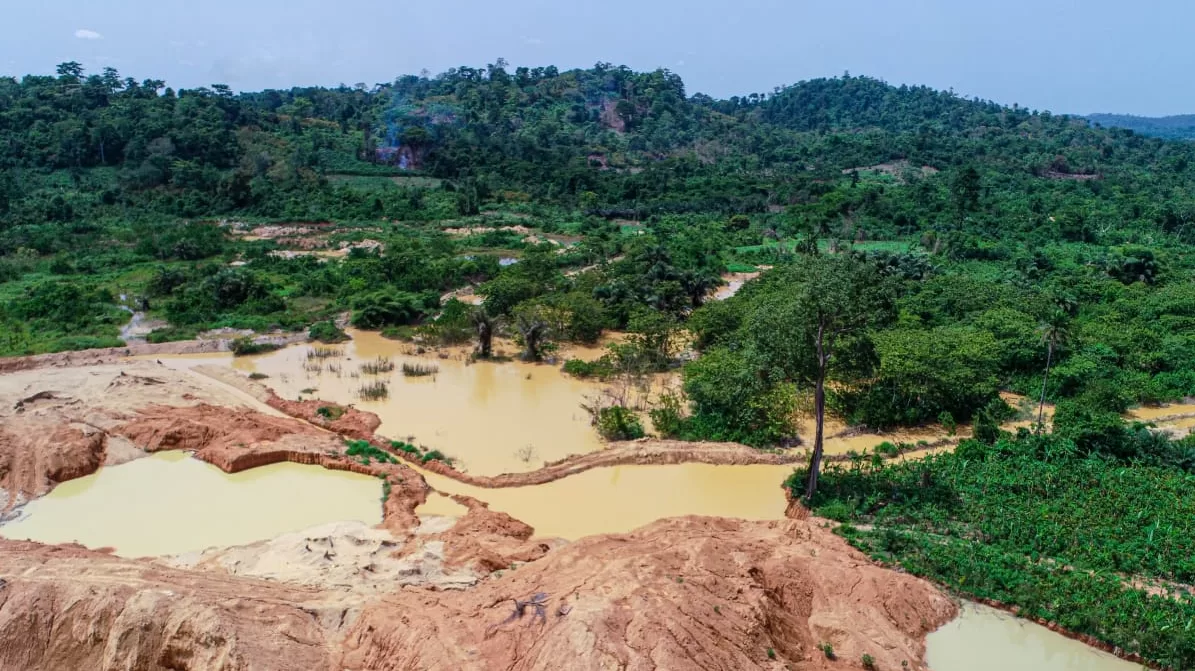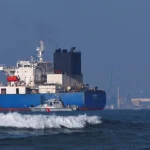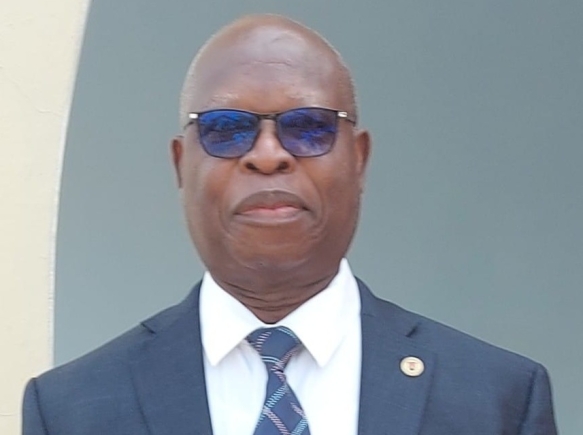Ghana, known for its rich natural resources, has long benefited from its gold reserves. However, illegal mining, popularly referred to as “galamsey”, has left a dark stain on the country’s environment.
As local communities scramble for economic survival, the toll on the environment is becoming more evident in the destruction of forests, contamination of water bodies, and the associated health risks for humans and wildlife.
The Toll on Water Bodies
According to the Water Resources Commission, over 60% of Ghana’s water bodies are polluted due to illegal mining activities. Rivers such as the Pra, Ankobra, and Birim, which once supported livelihoods and provided drinking water for surrounding communities, are now contaminated with toxic chemicals like mercury and cyanide.
A 2024 report by the Ghana Water Company Limited (GWCL) revealed that up to 40% of the country’s rural population has lost access to clean drinking water due to pollution from “galamsey” operations.
The Ghana Landscape Restoration and Small-Scale Mining Project (GLRSSMP), funded by the World Bank and implemented by the Environmental Protection Agency (EPA), aims to rehabilitate degraded landscapes, restore water bodies, and promote sustainable mining practices. A significant part of the project involves conducting Environmental and Social Assessments (ESAs) to monitor the long-term impacts of mining activities on communities.
Human Health and Livelihoods
The health risks posed by “galamsey” are deeply concerning. A 2023 study conducted by the University of Ghana’s Department of Chemistry revealed that nearly 70% of residents living near mining areas have mercury levels above the World Health Organization’s (WHO) recommended limits. Mercury poisoning can cause neurological damage, developmental issues in children, and increased rates of miscarriages among women.
Agriculture, another crucial source of livelihood for many Ghanaians, has also been severely impacted. The Ministry of Food and Agriculture estimates that around 2,000 hectares of arable land are lost annually due to illegal mining activities. Farmers in affected regions have reported up to 30% reductions in crop yields, directly linked to soil contamination from chemicals used in mining.
The GLRSSMP aims to help communities identify and mitigate Environmental and Social (E&S) risks. The project includes strategies for natural resource sustainability and ensuring the safety and well-being of local populations, particularly those whose livelihoods have been compromised by mining activities.
The Government’s Response and Political Challenges
In 2024, illegal mining remains a highly politicized issue, with both the New Patriotic Party (NPP) and the National Democratic Congress (NDC) being blamed for their inadequate handling of the crisis. Despite aggressive anti-galamsey campaigns, critics argue that both parties have failed to live up to their promises.
The NPP government, under President Nana Akufo-Addo, declared a major war on “galamsey” even launching Operation Vanguard in 2017, a military-police task force to fight illegal miners. The President famously said that he would put his presidency on the line to combat the menace. Despite these efforts, by 2024, 60% of water catchment areas remain severely affected by illegal mining activities, according to a Ghana Water Company report. Prominent political figures like Nana Ohene Ntow have openly criticized the NPP for failing to deliver on its promise, urging voters to reconsider their choices in the upcoming elections.
The NDC has not been spared from criticism either. The NPP accuses the NDC of exacerbating the galamsey crisis during their time in power, with claims that they allowed more environmental degradation. Frank Annoh Dompreh, Majority Chief Whip of the NPP, alleged that the NDC’s tenure saw even worse environmental destruction. The NDC, however, maintains that the NPP’s measures have been ineffective and that a new approach is needed.
With the “2024 elections” approaching, “galamsey” has become a central campaign issue. Both parties continue to trade blame, with neither presenting a clear solution to the ongoing crisis. The public, increasingly frustrated by political back-and-forth, is demanding real change and meaningful leadership to tackle the environmental devastation caused by illegal mining.
Moving Forward: A Call to Action
As Ghana works towards achieving its Sustainable Development Goals (SDGs), particularly in the areas of environmental sustainability and clean water access, more decisive actions are needed.
Community education on the dangers of “galamsey”, stricter legal frameworks and financial incentives for sustainable mining practices are some of the ways the country can begin to reverse the damage.
According to the United Nations Development Programme (UNDP), every dollar invested in environmental protection can save four dollars in future health costs and lost agricultural productivity.
Ghana’s future depends on safeguarding its natural resources, not only for the current generation but for those to come. It’s time for both government and citizens to prioritize the environment. Failure to act now could result in irreversible damage, with consequences that will be felt for decades.
















